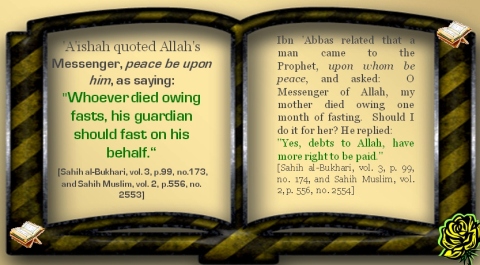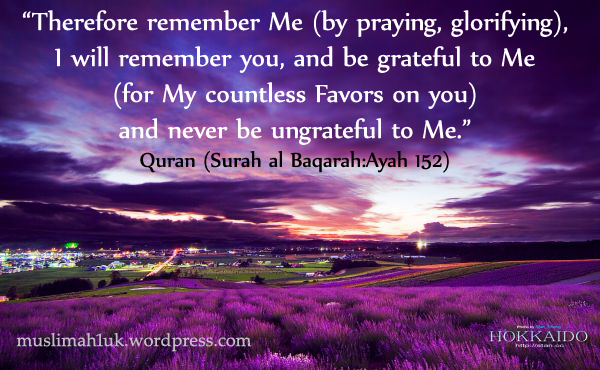
The Qur'an established two general principles concerning the reward and punishment for deeds:
- Each human will fundamentally only be benefited or harmed by the deeds which he or she actually did.
" ... humans will only have the result of their own actions." [53:39]
- No human can carry the sin of another.
" ... no one bearing sins can carry the sins of others." [53:38]
Consequently, when a person dies, the opportunity for that person to
do good ends with the person's death. However, the chance to harvest
good from deeds which were done prior to death remains.
Dua'a (Supplication)
The prayers of other Muslims on behalf of the dead will benefit the dead, by the permission of Allah. Had they done no good, no one would consider praying for them. If they were evil, the prayers of others will not benefit them. Allah praises the believers who pray for those who have passed away before their time:
Dua'a (Supplication)
The prayers of other Muslims on behalf of the dead will benefit the dead, by the permission of Allah. Had they done no good, no one would consider praying for them. If they were evil, the prayers of others will not benefit them. Allah praises the believers who pray for those who have passed away before their time:
"And those who came
after them say: Our Lord, forgive us and our brothers who preceded us in
faith, and do not put in our hearts any hatred against the believers.
Our Lord, You are indeed full of kindness, Most Merciful." [59:10]






